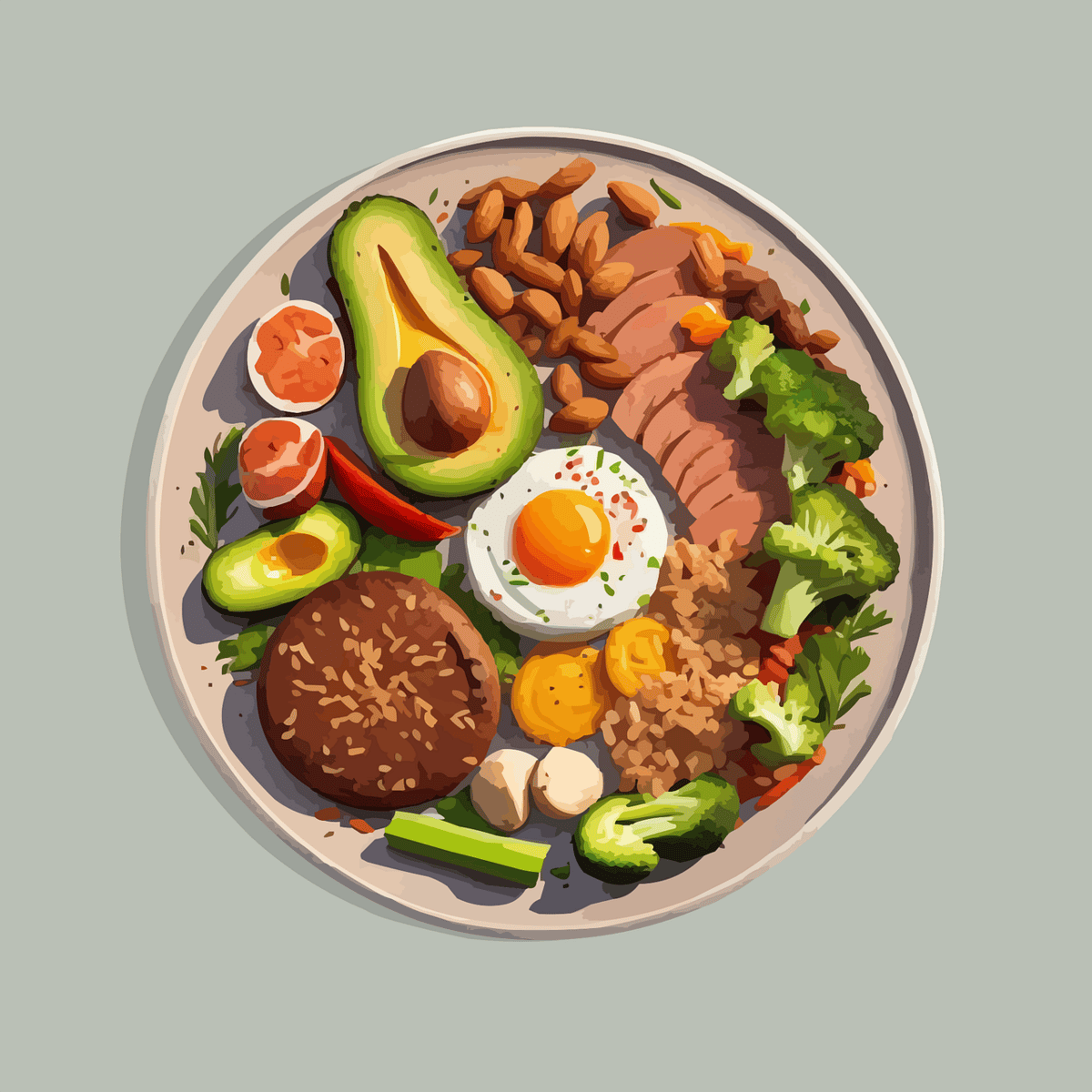A Comprehensive Guide to the Keto Diet: Tips and Strategies for Success
The ketogenic diet, commonly known as the plan keto, is a high-fat, moderate-protein, and very low-carbohydrate dietary approach. With roots tracing back to the early 20th century, it has garnered immense popularity in recent years for its potential benefits, including weight loss, improved metabolic health, and therapeutic uses in treating conditions like epilepsy and type 2 diabetes.
What is the Keto Diet?
The primary objective of the keto diet is to induce a metabolic state called ketosis, wherein the body uses fat instead of carbohydrates for energy. To achieve this, followers of the plan keto need to drastically reduce their carbohydrate intake—typically to less than 50 grams per day. This restriction initiates ketogenesis, resulting in the liver producing ketones from stored fat, thus providing an alternative energy source for the body.
Macronutrient Breakdown
-
Fats: A vital component of the keto diet, fats typically account for 60% to 70% of daily caloric intake. Source healthy fats include avocados, olive oil, nuts, seeds, and coconut oil.
-
Protein: Moderate protein intake is recommended at around 20% of daily calories. High doses of protein can disrupt ketosis, as the body may convert protein into glucose.
-
Carbohydrates: A critical hallmark of the plan keto, carbs are restricted to under 10% of total caloric intake, focusing mainly on non-starchy vegetables.
Types of Keto Diets
Several variations exist within the keto framework, accommodating different preferences and goals:
-
Standard Ketogenic Diet (SKD): The most common version featuring a macronutrient distribution of approximately 70% fats, 20% protein, and only 10% carbohydrates.
-
Cyclical Ketogenic Diet (CKD): This method incorporates periods of higher carbohydrate intake, allowing for muscle maintenance while still achieving ketosis when followed properly.
-
Targeted Ketogenic Diet (TKD): This plan allows for additional carbohydrates around workout times, providing energy for active individuals.
-
High Protein Ketogenic Diet (HPKD): Adjusted for higher protein intake, this variant generally follows a ratio of 60% fats, 35% proteins, and 5% carbohydrates.
Benefits of the Keto Diet
-
Weight Management: Reducing carbohydrate intake often leads to weight loss by encouraging the body to burn fat as its primary source of fuel.
-
Energy Levels: Many subscribers to the plan keto report improved energy levels and sustained endurance since the body learns to utilize fat reserves effectively.
-
Mental Clarity: Anecdotal evidence suggests a connection between ketosis and enhanced cognitive clarity, often attributed to the stabilization of blood sugar levels.
-
Blood Sugar Regulation: By minimizing carbohydrate intake, many people experience improved insulin sensitivity, beneficial for diabetics and those with metabolic syndrome.
-
Potential Therapeutic Uses: Research supports the keto diet's effectiveness in treating certain medical conditions like epilepsy, Alzheimer's disease, and polycystic ovary syndrome (PCOS).
Practical Tips for the Keto Diet
-
Plan and Prepare: Effective meal planning is crucial for sticking to the plan keto. Allocate time weekly to prepare meals ahead, ensuring you stay within macro guidelines.
-
Experiment: Keep things interesting by trying various recipes to prevent boredom. Search for creative keto alternatives to your favorite foods.
-
Read Food Labels: Pay attention to nutritional labels to make educated choices about what you're consuming. It's essential to track your fat, carb, and protein intake wisely.
-
Stay Hydrated: Drink plenty of water, especially as you transition into ketosis, to prevent dehydration, which can manifest as headaches and fatigue.
-
Moderate Protein Intake: While it’s crucial to consume adequate protein, excessive amounts can inhibit ketosis, so aim for moderation.
-
Consider Intermittent Fasting: Combine your keto approach with intermittent fasting to accelerate the transition into ketosis. Always consult a healthcare professional before starting such a regimen.
-
Consult Professionals: Before embarking on any new diet, especially one as restrictive as the keto diet, always seek guidance from a healthcare practitioner.
-
Utilize Resources: For those seeking additional guidance, our collection of ebooks on the keto diet offers valuable insights, meal plans, tips, and recipes tailored for various dietary lifestyles.
Explore Our Ebooks
At Keto 1 Dollar Ebooks, we provide an extensive range of resources tailored for your plan keto journey, including meal plans, recipe guides, and tips for success—all priced with the option to choose your own price starting from just $1!
- Begin Your Journey: Unlock Your Keto Journey
- Delicious Low-Carb Recipes: Try our ebooks on Delicious Keto Desserts and Low-Carb Meals to satisfy those cravings without guilt.
- Essential Guides: Discover our Essential Keto Diet Foods List and the Ultimate Guide to Keto for Beginners.
Each purchase is a step towards achieving your health aspirations without breaking the bank.
Conclusion
The plan keto is a transformative approach that offers numerous health benefits, from weight loss to improved metabolic health. With proper understanding and planning, you can embark on this dietary journey successfully. As you navigate your keto lifestyle, don't forget to take advantage of our expertly crafted ebooks tailored to assist you on your way.
To explore our collection of affordable ebooks and begin your keto transformation today, visit our shop: Keto 1 Dollar Ebooks. Start your journey to a healthier, more vibrant you!
Next Steps
Now that you have a clear understanding of the ketogenic diet and its benefits, it's time to put your plan keto into action. Start by creating a weekly meal plan that incorporates budget-friendly, low-carb ingredients. Focus on staple foods such as eggs, avocados, and seasonal vegetables to keep costs down. Take advantage of our curated Essential Keto Diet Foods List to choose affordable options that align with your macro guidelines. Additionally, explore our various ebook resources for budget-conscious recipes and meal ideas that can keep your keto journey exciting and enjoyable. Lastly, don’t forget to stay hydrated and monitor your progress; adjusting your plan as needed will help you stay on track. By taking these practical steps, you can successfully maintain a fulfilling and budget-friendly keto diet.
